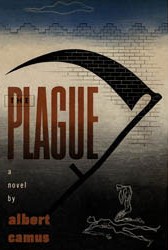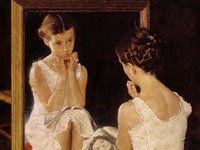 One of the great novels of the twentieth century. Also one of the most powerful expressions of existentialism and humanism ever written. I reviewed this book for the Narrative Medicine Series in 2002. See also the article A Hero for Our Times published in The Guardian.
One of the great novels of the twentieth century. Also one of the most powerful expressions of existentialism and humanism ever written. I reviewed this book for the Narrative Medicine Series in 2002. See also the article A Hero for Our Times published in The Guardian.
 The Plague is an allegorical novel set in the modern city of Oran on the north African coast. The principal character Dr. Rieux confronts a series of medical, ethical and moral dilemmas as an epidemic of bubonic plague breaks out and the city is quarantined. Rieux must overcome his fear, loneliness and despair in order to function while conceding that he is mostly powerless in the face of his microscopic enemy. As the crisis abates he concludes that he only did what had to be done and will be done again “by all who, while unable to be saints but refusing to bow down to pestilences, strive their utmost to be healers.”
The Plague is an allegorical novel set in the modern city of Oran on the north African coast. The principal character Dr. Rieux confronts a series of medical, ethical and moral dilemmas as an epidemic of bubonic plague breaks out and the city is quarantined. Rieux must overcome his fear, loneliness and despair in order to function while conceding that he is mostly powerless in the face of his microscopic enemy. As the crisis abates he concludes that he only did what had to be done and will be done again “by all who, while unable to be saints but refusing to bow down to pestilences, strive their utmost to be healers.”
2016 Update: I was taught in medical school that the “Ring Around the Rosie…” nursery rhyme referred to The Plague. Nice story but it appears to be apocryphal!

 Just finished listening to a
Just finished listening to a 